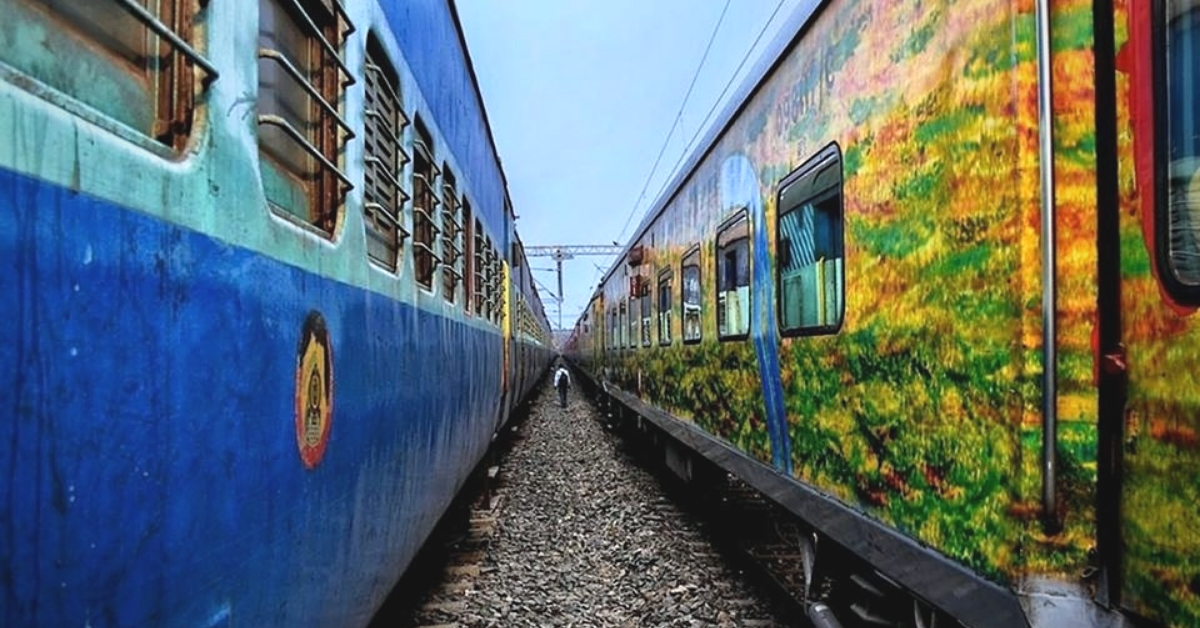Indian Railways: Avail Emergency Quota For Medical Trips & Get Deduction in Train Fare!
Transporting an elderly or sick person, but unable to get confirmed railway tickets? This facility by Indian Railways can solve your problem. Get details here!

A tragic incident which resulted in the death of a one-year-old girl due to the lack of a reserved seat in the train has brought into the light the lack of awareness around emergency quota seats in the Indian Railways.
As reported by India Today, the one-year-old girl, Marium, who was suffering from heart disease, was travelling on the Maveli Express from Kannur to Thiruvananthapuram for urgent medical treatment.
Mariam’s parents, Shameer and Sumayya, pleaded with the TTEs for a berth in a reserved compartment, but the train was fully booked, so the TTEs directed them to travel in a general compartment.
“They were not ready to offer us a reservation despite Mariam’s health deteriorating. I pleaded with the railway officials for a berth. Finally, I took my wife and Mariam to a ladies compartment where the crowd was thinner and [I] travelled in the general compartment from Kozhikode,” Shameer said.
Unfortunately, Marium did not survive the journey.
As per the rule, all passengers who are travelling via train for medical purposes can avail an emergency quota, which allows them to secure seats, even at short notice. In such cases, the reservation clerk needs to reach out to the division office, and the application for the seat under the said quota needs to be submitted before the final reservation chart is prepared.
For the booking of the ticket, passengers are required to submit a doctor’s certificate as well.
You May Also Like: Indian Railways Hikes Lower Berth Quota For Elderly, Women Passengers: Facts to Know
To ensure that such incidents are not replicated it is essential to be wary of the provisions provided by the railways and exercise them.
Here is all that you need to keep in mind:
1) Patients bound for heart surgeries and equipped with a doctor’s certificate will be able to avail a 75% reduction in the fare, both for themselves and a helper. For a cancer patient and his or her helper, the reservation can be done for free.
2) Although there is no mandate which gives a TTE (Travelling Ticket Examiner) the authority to allot seats for emergency travel for treatment, they can, however, provide them on humanitarian grounds.
3) In case of any urgent medical care during the journey, it is important to use the reservation chart to identify a doctor who is travelling, and seek out his or her services.
4) As per the guidelines, in such situations, the TTE or the guard should proactively inform the control room about the said patients and arrange for urgent care and treatment, in the next station itself. Meanwhile, the station master is required to make all the necessary arrangements for an ambulance to take the patient to a hospital at the soonest.
5) The details of nearby hospitals are to be displayed at all stations.
6) While travelling under emergency care, passengers can reach out to the authorities through the toll-free numbers 138 and 182 for any assistance. Although 182 is mostly used for security purposes, the call is eventually transferred to the control room, and the immediate authorities are alerted for help.
(Edited by Gayatri Mishra)
Representational Photo: Pixabay
Like this story? Or have something to share?
Write to us: [email protected].
Connect with us on Facebook and Twitter.
If you found our stories insightful, informative, or even just enjoyable, we invite you to consider making a voluntary payment to support the work we do at The Better India. Your contribution helps us continue producing quality content that educates, inspires, and drives positive change.
Choose one of the payment options below for your contribution-
By paying for the stories you value, you directly contribute to sustaining our efforts focused on making a difference in the world. Together, let’s ensure that impactful stories continue to be told and shared, enriching lives and communities alike.
Thank you for your support. Here are some frequently asked questions you might find helpful to know why you are contributing?


This story made me
-
97
-
121
-
89
-
167











